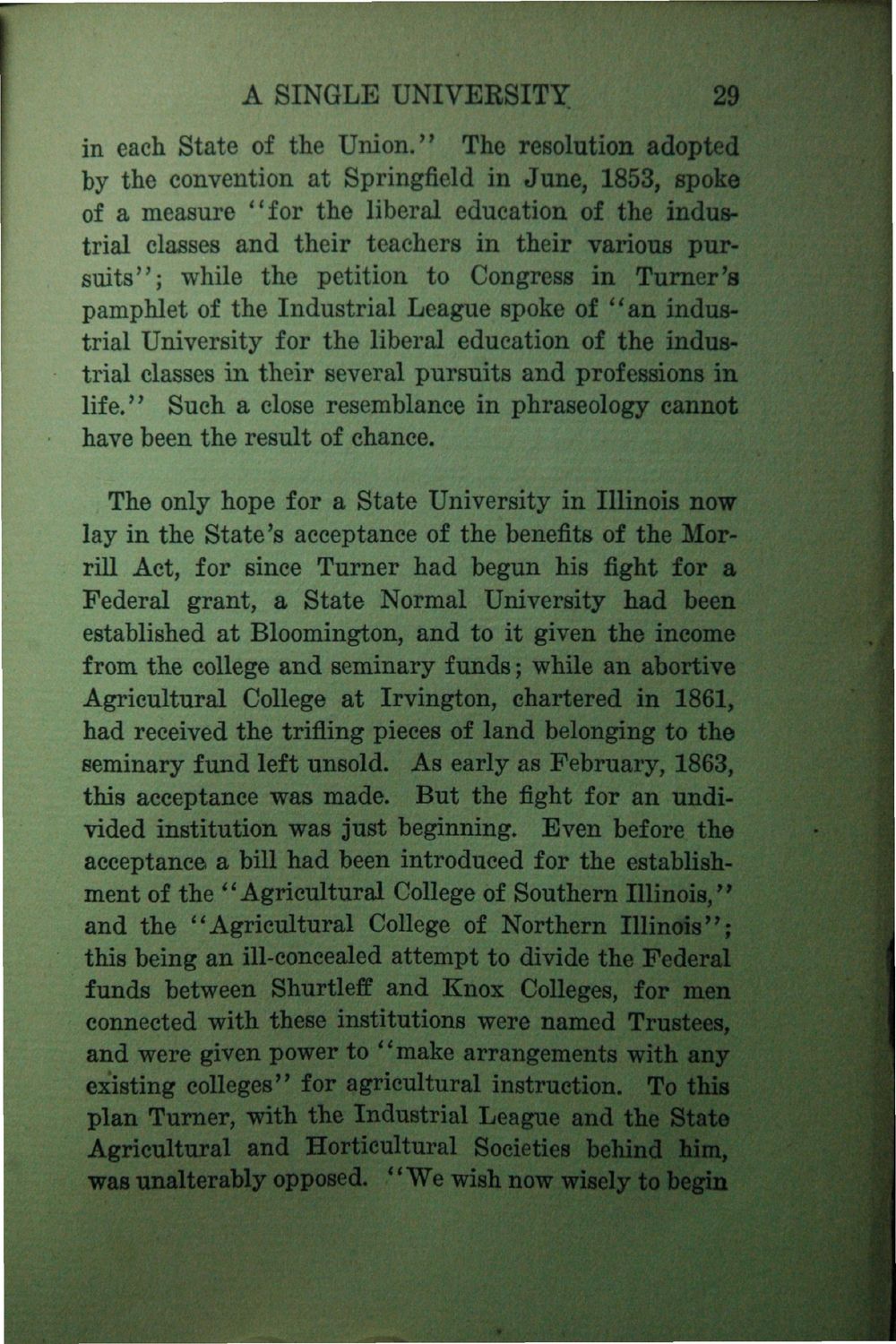| |
| |
Caption: Book - History of the University (Nevins)
This is a reduced-resolution page image for fast online browsing.

EXTRACTED TEXT FROM PAGE:
A SINGLE UNIVERSITY 29 in each State of the Union." The resolution adopted by the convention at Springfield in June, 1853, spoke of a measure "for the liberal education of the industrial classes and their teachers in their various pursuits"; while the petition to Congress in Turner's pamphlet of the Industrial League spoke of "an industrial University for the liberal education of the industrial classes in their several pursuits and professions in life." Such a close resemblance in phraseology cannot have been the result of chance. The only hope for a State University in Illinois now lay in the State's acceptance of the benefits of the Morrill Act, for since Turner had begun his fight for a Federal grant, a State Normal University had been established at Bloomington, and to it given the income from the college and seminary funds; while an abortive Agricultural College at Irvington, chartered in 1861, had received the trifling pieces of land belonging to the seminary fund left unsold. As early as February, 1863, this acceptance was made. But the fight for an undivided institution was just beginning. Even before the acceptance a bill had been introduced for the establishment of the "Agricultural College of Southern Illinois," and the "Agricultural College of Northern Illinois"; this being an ill-concealed attempt to divide the Federal funds between Shurtleff and Knox Colleges, for men connected with these institutions were named Trustees, and were given power to "make arrangements with any existing colleges" for agricultural instruction. To this plan Turner, with the Industrial League and the State Agricultural and Horticultural Societies behind him, was unalterably opposed. *' We wish now wisely to begin
| |